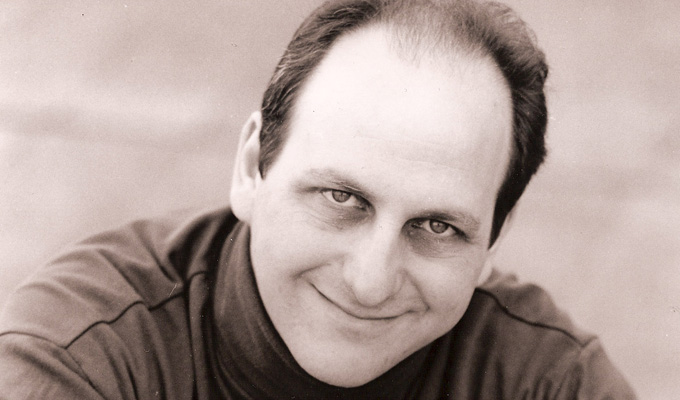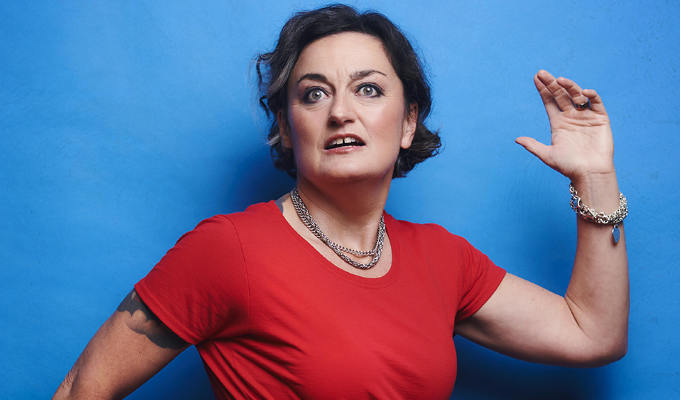
How to be a proper Charlie
Dave Cohen doesn't have all the answers
I've been writing about comedy on and off for about six years. The subject areas are quite niche and rarely relevant to the world beyond our tiny universe of writers, performers and others who seek to make a living being funny.
Occasionally this world has collided with the larger one. I've written about racism in comedy, sexism, misogyny, upsetting religious people and right-wingers, the limits of free speech, and anti-semitism in French comedy, so it would seem strange for me not to address the murders of people who did more or less the same as what I do for a living.
But as with all the above subjects, I'm no longer alone. Everybody who writes opinion pieces in newspapers has joined in, and has covered every angle of this awful story.
I admire their certainty, which is mainly the result of having to write to a deadline, but also part of a growing trend that forces people to state their position the moment something shocking happens, as if the murder of a bunch of cartoonists in the centre of Paris is the kind of incident that can instantly confirm or confound our deeply cherished prejudices.
The comedian Andrew Lawrence, for example, was able to ask on Twitter within an hour of the Charlie Hebdo massacre why he had yet to see a liberal response. He was right. As a fully paid up member of the wishy-washy pinko-liberal tendency, I needed a lot more than an hour to process what had happened.
And it's still not enough time. I'm writing this piece five days on, not least because I don't yet know how to respond, and maybe I'll have a clearer idea by the time I finish. I've made several false starts, and considered not writing it at all, aware that what the world probably doesn't need at this moment is another article about 'What Charlie Hebdo Means For (insert homogenous group here)'.
Instead of trying to make sense of it, or come up with a response of expert certainty, I'd like to start by accepting that I don't know the answers, and at least to acknowledge there will always be conflict, and it's okay to disagree with people. I don't know Andrew Lawrence, have never met him, but will have been through many similar experiences. I'm sure we'd find plenty to bond over, such as the joys and pains of performing a one-man show over a month in Edinburgh, the triumphs and despairs, paranoias and banalities of hanging around at the side of a makeshift stage in a room above a pub, waiting for our names to be announced by the compere.
Instead of arguing with him directly, or you, or anyone on Twitter and Facebook about who is right and wrong, I’ll ask the one question most pertinent to this site, which is, as a comedy writer or performer, how far can you go? There has been plenty of discussion of the limits of free speech, and a debate about the quality of the cartoons that led to this atrocity. But nothing so far that asks you, the individual comedy writer, whether you're starting out or have been doing this for 30 years - what will you joke about? What subjects will cause you to say 'I don't go there'?
Of course I'm not going to be able to tell you. We each have a moral standpoint, and we're all different. All I can do is recount my experience, and see if this can provide any answers (for me, as much as you).
I have been writing topical comedy, or as some call it 'satire', for more than 30 years. I've written about lots of subjects, and got into deep trouble on a number of occasions, but I have personal limits. My rule has always been 'who is the target of my joke? Are they weak or strong?' That was always fairly easy, and it's meant I've never done jokes about rape or race. I've joked about religious people of all denominations, but Jews especially, they're my specialist subject. An extremely devout family member once said to me, ‘it’s OK Dave, you can keep doing it, I think my belief is strong enough to survive your jokes.’
It's rarely been a problem: Once you know what you think, it's relatively straightforward. At one point I was doing a joke in my act about the dilemma of earning good money at comedy and becoming a 'Hooray Hymie'. One Midnight Show at the Comedy Store I heard a new kind of laugh from the corner of the room. I'd never heard it before but recognised instantly that those members of the audience were not laughing with me but at me, and I stopped doing that line.
Another time some writers on a TV show I was working on thought it would be hilarious to try and get a Nazi gas chamber joke past me. It was subtle, and I spotted it, and explained to them that we couldn't do that line, pretending they hadn't realised. They had, of course, I basically let them get away with it, and I still cringe now remembering how I never properly confronted them.
The problem with last week's horrors is they don't conform to my nice easy rules. Who are the weak and who are the strong? You can say that the Muslim population of France, subject daily to verbal and physical attacks in a country where a fifth of the population supports a fascist party, are the weak. You could argue, as many have, that American foreign policy in the Middle East is to blame. But then, who is behind the attacks? Who is paying large amounts of money to send young European Muslims to Syria to train them to return to their home countries and wreak havoc? Who is the stronger here, a bunch of wimpy cartoonists or the governments of Yemen and Saudi Arabia?
Now I'm back at work, how do I respond? There are two questions I have to address, one easy and one less so: the first is, never having done anti-Muslim jokes, do I start now? The easy answer to that is no, that wouldn't be true to who I am and the comedy I do. I'm not judging, or telling you what jokes you should do. If that's how you operate then your answer will be different to mine. As long as you're being true to yourself and are confident to stand by every word you write, then go ahead.
(And I know that every joke we write is subject to trial and error, we usually need to try them several times in front of an audience, or get them past several gatekeepers who read our scripts... but if at the time of conception you are unable to say ‘I stand by that joke’ then maybe you should re-think it.)
The second question is, do I stop addressing the issues altogether? This is a difficult one for me. When I was a stand-up I was forced to present to comedy audiences a point of view about the faith of my birth, on the basis of my surname alone. Over that decade of performing I was called Jew, Jewboy, Yiddo, Zionist apologist, racist, and that was before I'd even made it on stage, and based purely on my name being announced by the compere.
I decided early on to turn that into a positive, so joking about my English-Jewish background and my attitude to Israel has always been a big part of my work. In recent years I've been working with Muslim writers and performers, using our shared passion for comedy to try and make sense of our nonsensical conflict.
Of course you should carry on Dave, as friends have been saying to me for days, now more than ever we need comedy to address this issue. And there is something of the martyr that appeals to many stand-ups. Our job is to surprise our audiences, to show them their world in a different light, and this often involves saying the opposite to what they want to hear.
Many of my generation of comics were inspired to take up the profession by the American comedian Lenny Bruce, the first, many argue the greatest, modern stand-up. In the strait-laced 1950s and early 60s, he was the first to swear on stage. You might be amazed to know that, simply for using the word 'cocksucker' on stage, he was arrested on numerous occasions and hounded for the rest of his career, much of which was spent in court defending himself and the right to use everyday language in his act. His quick decline and early death ensured that he would be remembered as a martyr to the cause of free speech, a man who suffered and died so that we could stand on stages and tell jokes about Islam and rape.
Maybe if I was still in my 20s, still performing stand-up, working late and surrounded by the nightly excitement of live comedy, the romance (and potential career boost) of sticking my neck out would appeal. But now that I'm 56, and happy, with a loving family and doing a job I mostly love, what kind of appeal does martyrdom hold? Which would you rather be, a dead martyr or a living coward?
Well, I'm Jewish, and in the volatile climate of the last few months I've been subject to a number of racist comments from people who have assumed they know what I think about Israel and Gaza, simply because of my surname. These have come from the same places where it is argued (correctly) that you can't slag off all Muslims because of the actions of a few fascists among them. So even if I refuse to engage with the subject matter, it will continue to engage with me.
That's what this piece is then, a beginning not an end. I am genuinely curious to know what your limits are. Especially if your viewpoint is different to mine. Not because I want to score points off you and prove that I'm right and you're wrong, but because we need to talk about this in a calm and reasoned manner. Which I realise, to some, is probably the funniest thing I've said in this whole piece.
But at least when we're talking we're not shouting, and we're not shooting. I await your comments with trepidation, and interest.
Published: 13 Jan 2015






